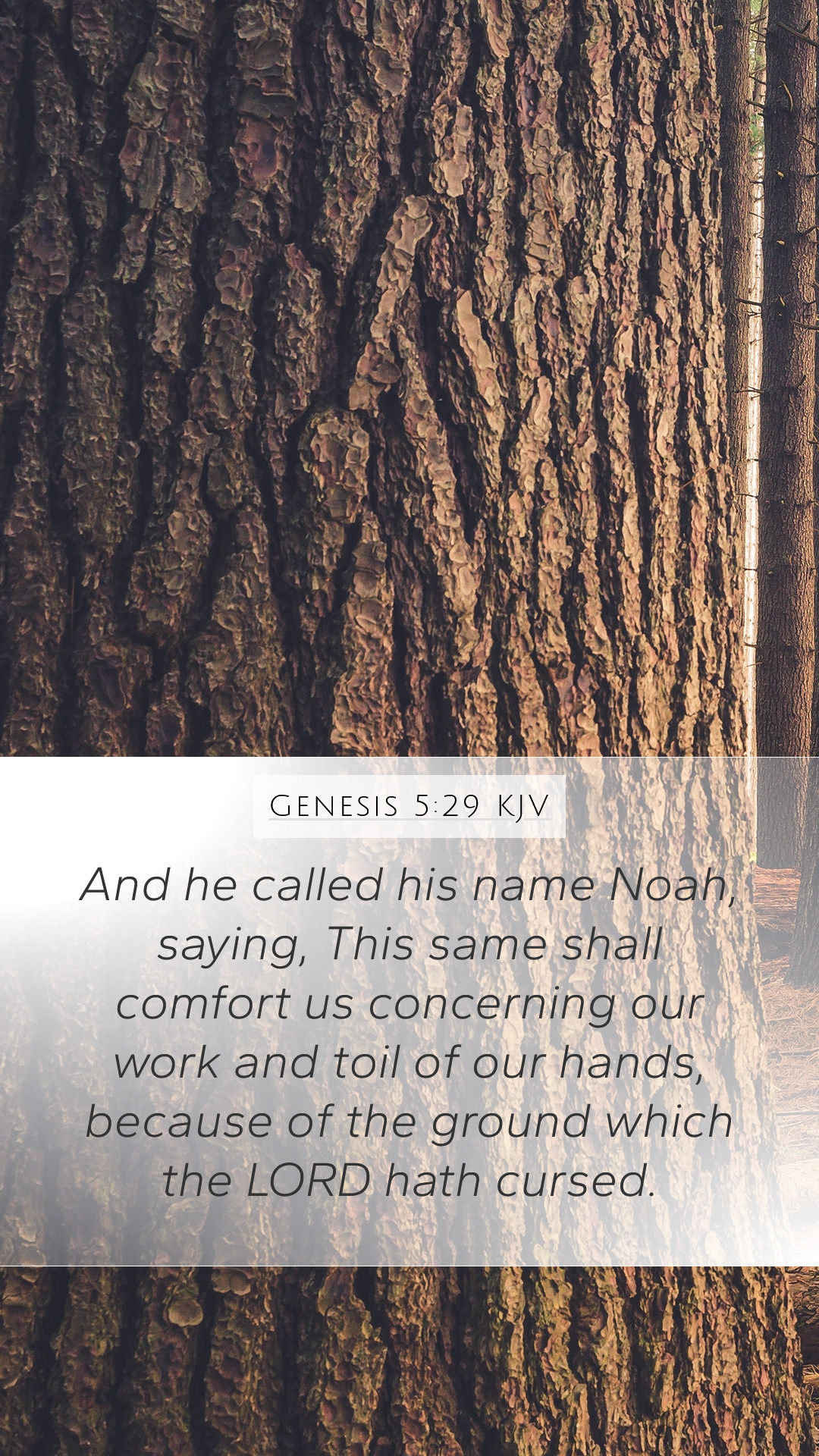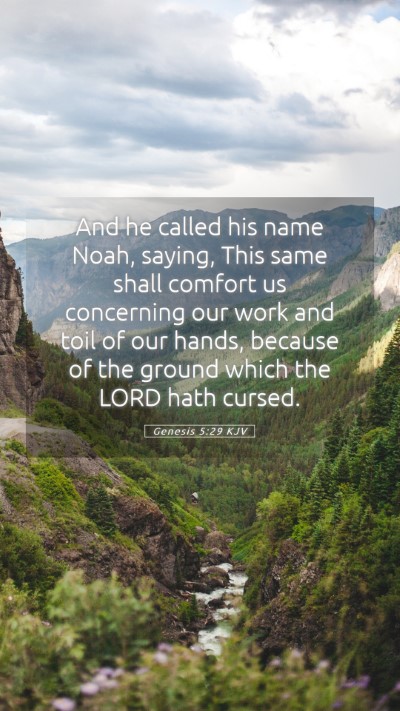Understanding Genesis 5:29: Bible Verse Interpretations and Commentary
Genesis 5:29 states:
"And he called his name Noah, saying, This same shall comfort us concerning our work and toil of our hands, because of the ground which the Lord hath cursed."
The verse highlights the prophetic significance of Noah's name, which means "comfort" or "rest." Below, we delve into the interpretations and insights provided by renowned public domain commentaries such as those by Matthew Henry, Albert Barnes, and Adam Clarke, to enhance our understanding of this scripture.
Key Themes and Ideas
- Prophetic Naming: The act of Noah's father, Lamech, naming him with the expectation of comfort reflects a prophetic insight into the future role Noah would play in history.
- The Curse of the Ground: This verse connects directly to the curse given in Genesis 3:17-19, emphasizing human toil and suffering as a consequence of sin.
- Hope and Restoration: The mention of comfort highlights a central theme of hope amidst despair, indicating that God is faithful even in the face of judgment.
Bible Verse Meanings and Interpretations
Understanding Genesis 5:29 requires a comprehensive examination of its historical context and theological implications.
Matthew Henry's Commentary
Matthew Henry suggests that Lamech's declaration signifies the hope for relief from hardship and signifies Noah's role as a deliverer. He emphasizes that Noah would provide comfort not only through his name but through the salvation he would provide during the Flood.
Albert Barnes' Commentary
Albert Barnes notes the dual nature of Noah’s name: it speaks both of the relief from the toil associated with the cursed ground and foreshadows the new beginning that would come after the Flood. He indicates that Noah’s life and actions would embody this comfort, while also being a precursor to God's covenant with humanity.
Adam Clarke's Commentary
Adam Clarke elaborates on the practical implications of Noah’s name, interpreting it as a promise of deliverance from toil. He points out that this passage speaks to the broader picture of redemption, connecting Noah to themes of God’s mercy and grace amidst human sorrow.
Implications for Bible Study
This verse serves as an excellent example for Bible study groups seeking to explore themes of prophecy, hope, and redemption in Scripture. It encourages believers to consider how names and identities in the Bible bear significant meaning and how they continue to influence the narrative of faith.
Cross References
- Genesis 6:8 - Discusses Noah's favor with God.
- Genesis 3:17-19 - Describes the curse on the ground.
- Genesis 9:11 - God’s covenant with Noah after the Flood.
Application of Genesis 5:29
Applying the message of Genesis 5:29 to daily life involves recognizing the grace extended through Christ, who is our ultimate source of comfort. Just as Noah was called to provide comfort, Christians are encouraged to embody that same spirit of hope and restoration, offering support to those around them suffering from life's burdens.
Conclusion
Genesis 5:29 is rich with meaning, inviting deeper exploration into its implications for humanity's relationship with God. From prophetic insights about Noah to themes of toil and redemption, this verse prompts believers to delve deeper into Scripture analysis and biblical exegesis. By understanding this scripture, we enhance our Bible study insights and grow in our comprehension of God’s plan for salvation.
For further study: Engage with various Bible study resources and tools, such as online Bible study guides, to explore more about the significance of biblical names and their meanings in context.


